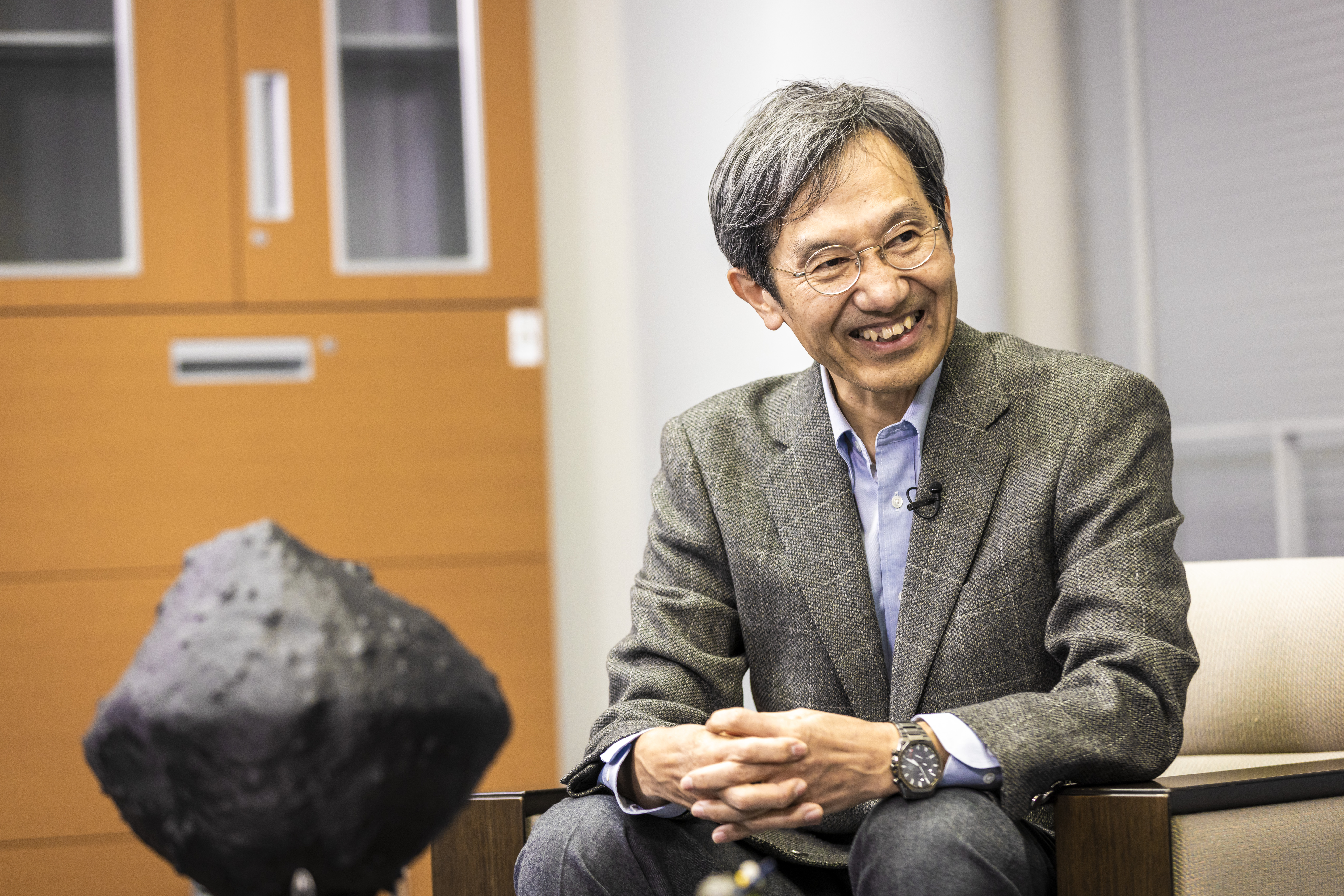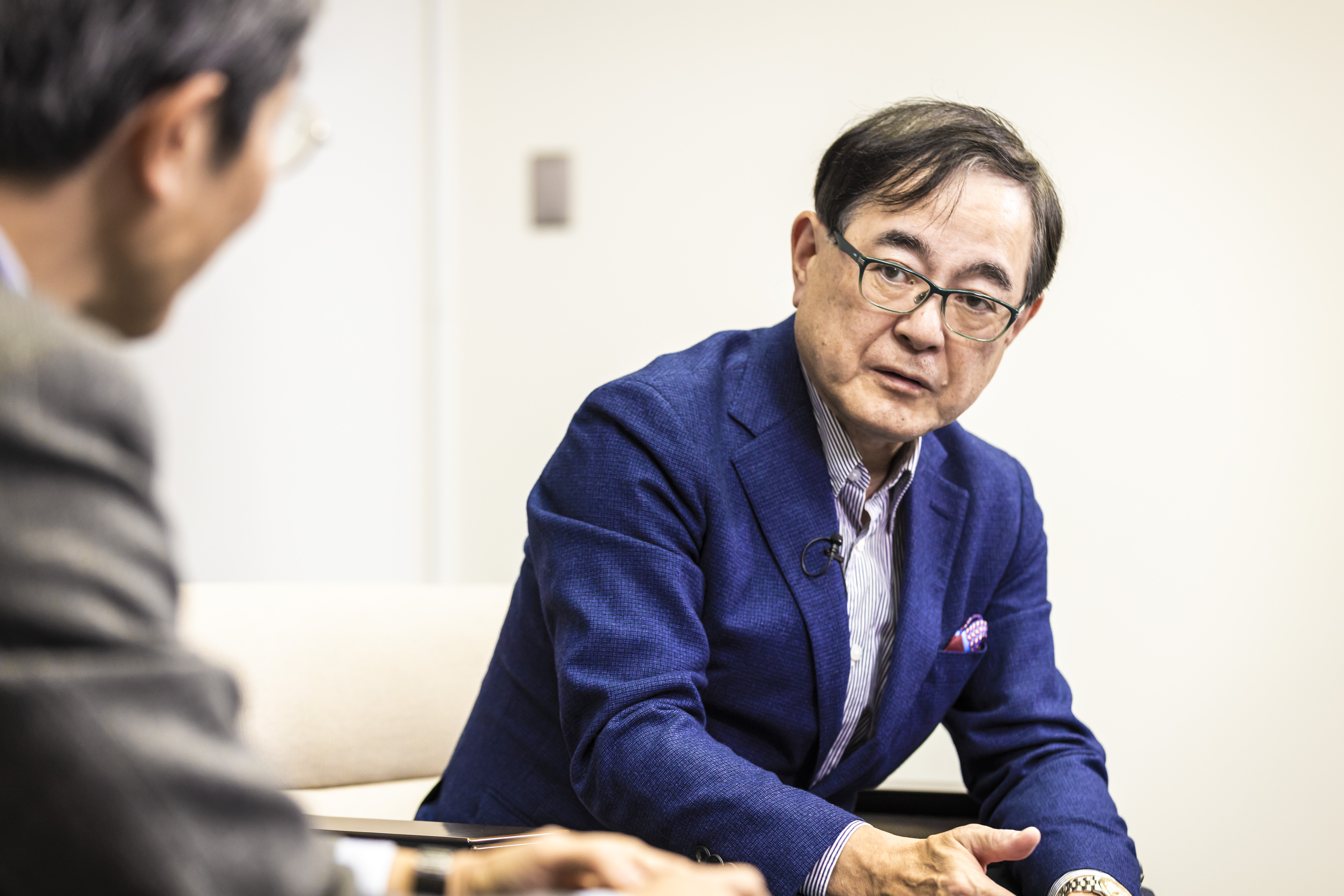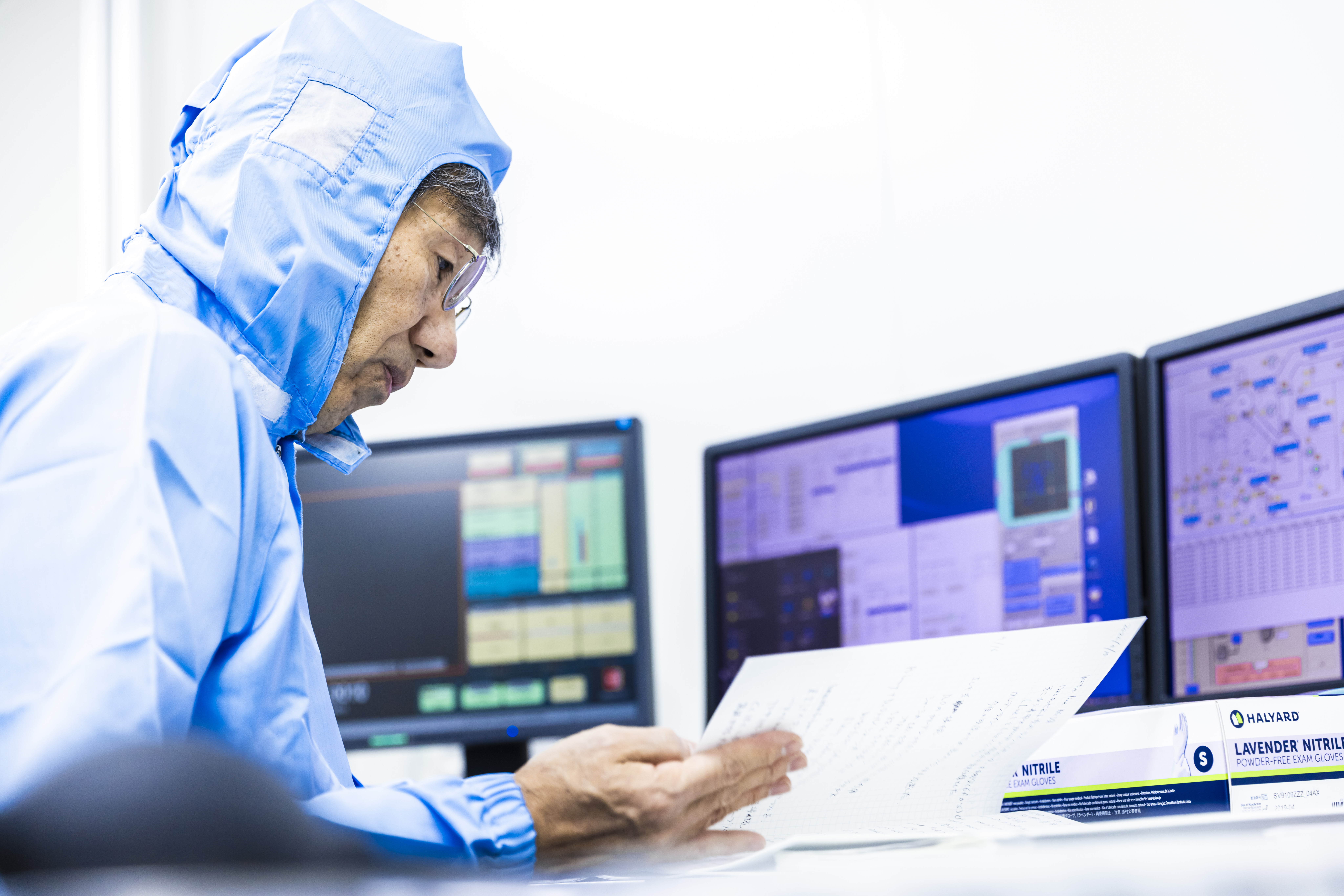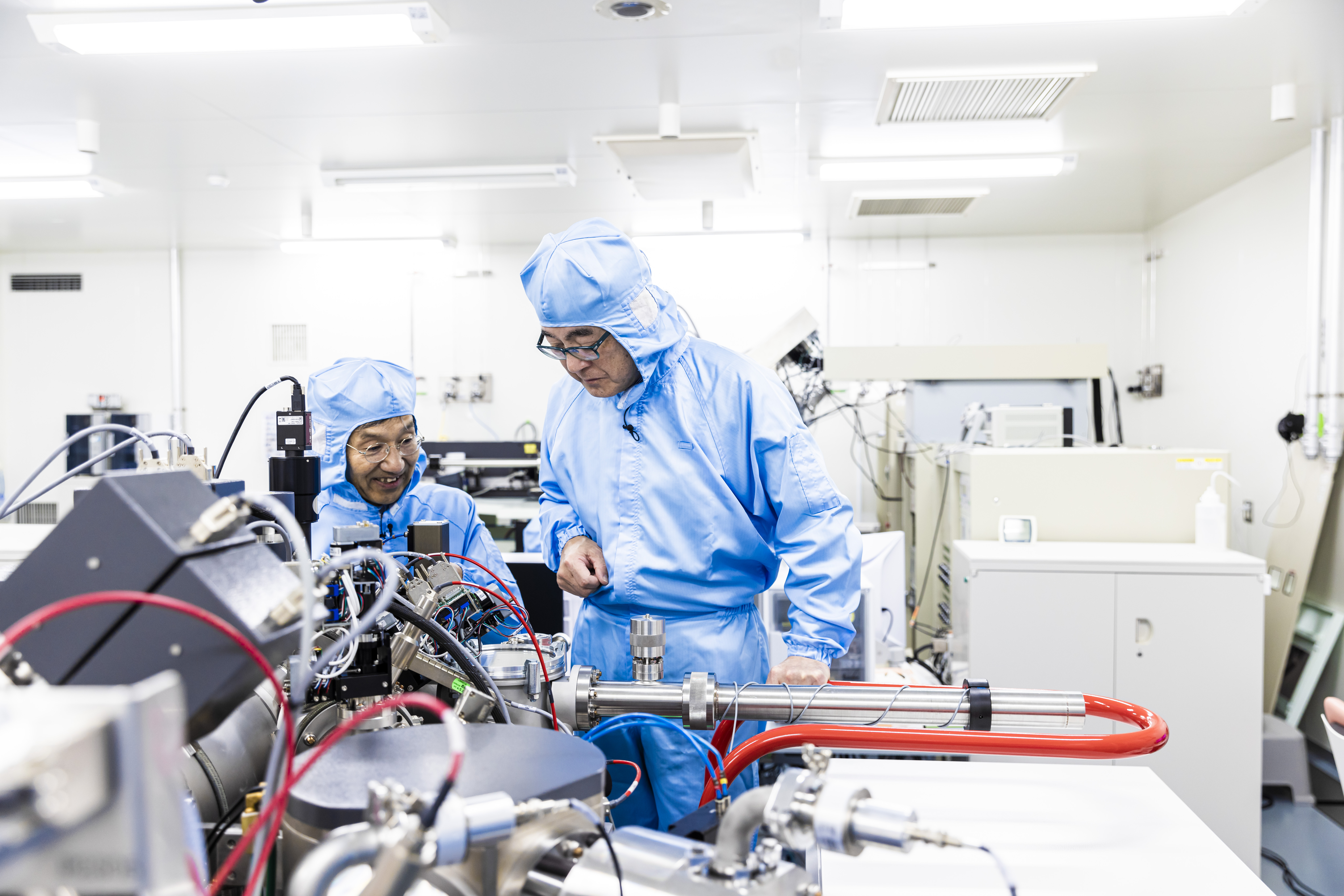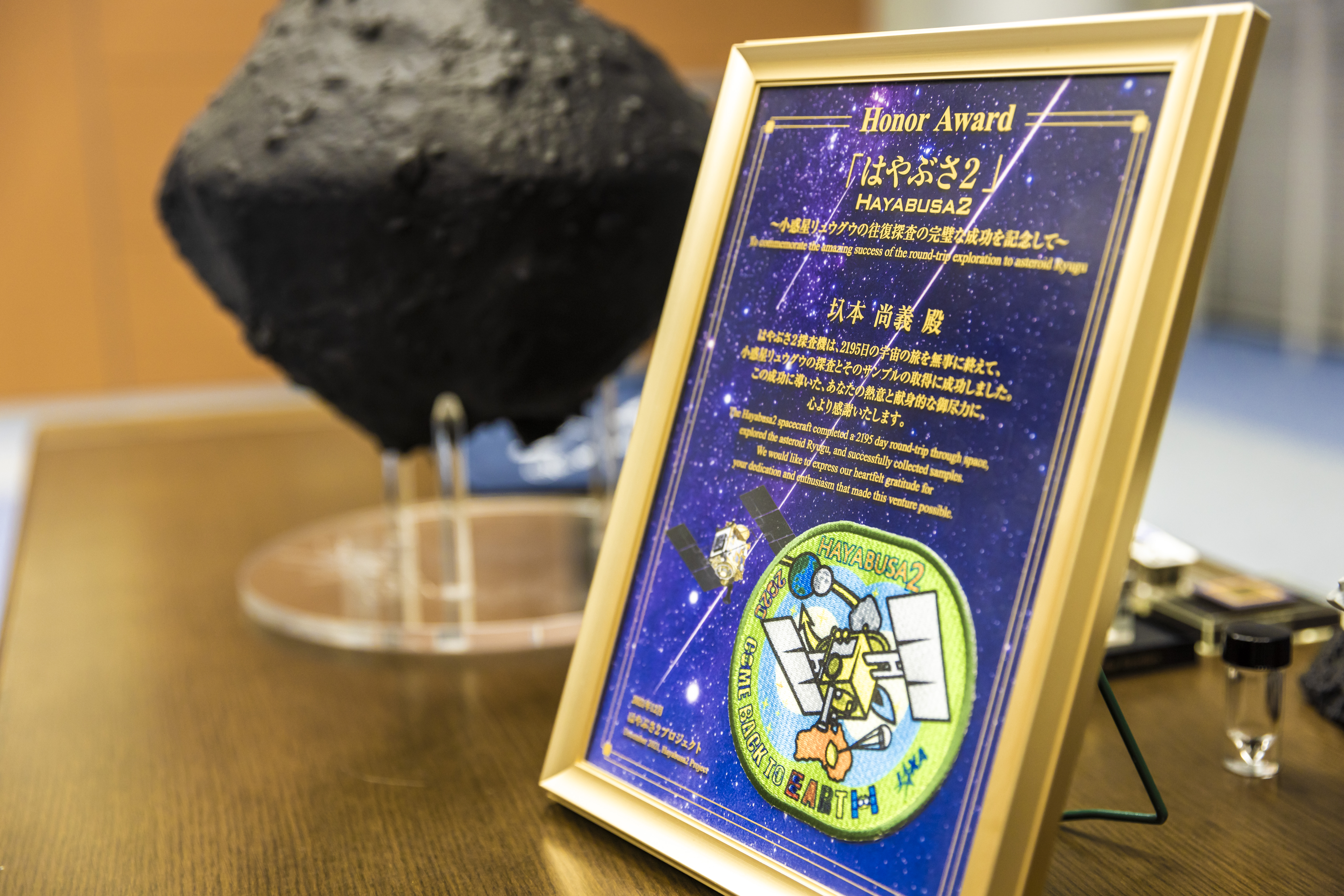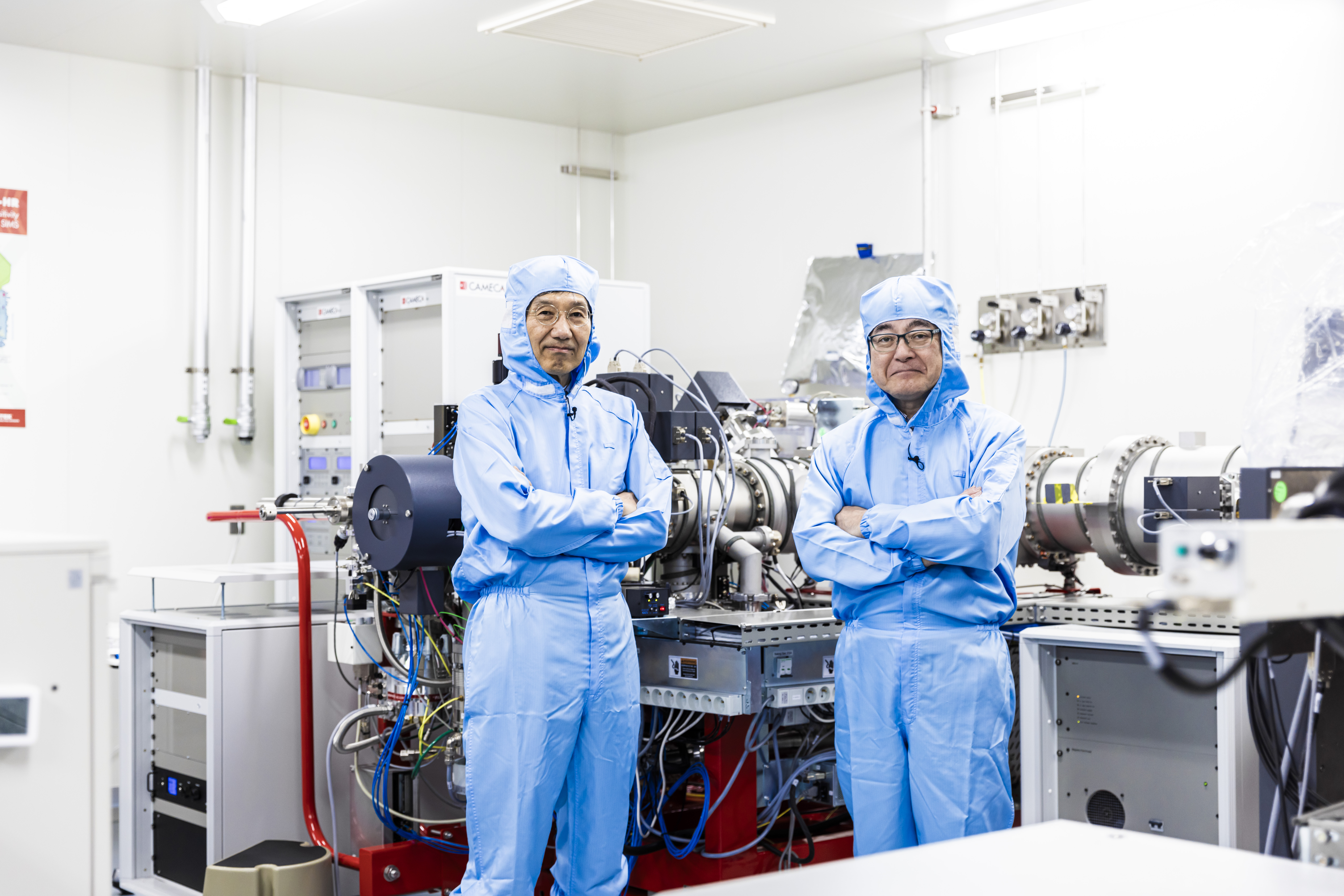The President's Adventures in Knowledge-Land Vol. 2 "Endless research on the endless space" video
The President's Adventures in Knowledge-Land is a series in which Hokkaido University President Kiyohiro Houkin, also a neurosurgeon, visits fascinating researchers at Hokkaido University. In the second session, entitled Endless Research in an Endless Universe, he visited Professor Hisayoshi Yurimoto of the Graduate School of Science. Professor Yurimoto led an international team of more than a hundred researchers in analyzing samples from the asteroids Itokawa and Ryuguu, brought back by the asteroid-exploring spacecraft Hayabusa and Hayabusa2, respectively. They discussed the fascination of research into the origin of the solar system and the research environment at Hokkaido University.
From an Orange Orchard to Astronomy
Houkin: You were born in Wakayama Prefecture, weren't you? What was your childhood like?
Yurimoto: My family was a mandarin orange farmer. Before I entered elementary school, I used to play in the mandarin orange orchards.
Houkin: Were you already interested in space at that time?
Yurimoto: I used to find crystals and other things when I dug up soil in the mountains, and used to collect these sparkling things. So I think I had that kind of collecting habit. Later, I fell in love with science and became interested in astronomy.
Houkin: After receiving your degree, what kind of research did you start?
Yurimoto: I started with meteorites. But I didn't start working directly on meteorites until a little later when I was experimenting with the diffusion of atoms in solids.
Houkin: Were meteorite samples available at that time?
Yurimoto: Yes, but they were hard to obtain.
Houkin: So, meteorites that fall to the earth were subjects of research, weren't they?
Yurimoto: That's right. When you study meteorites, you learn a lot of things. That is the basis for everything we do.
Houkin: But it is only recently that we have been taking asteroid samples from the vacuum of outer space, isn't it?
Yurimoto: That is recent. It started around 35 years ago.
Houkin: Hayabusa was not the first, was it? Who did it first?
Yurimoto: Hayabusa was the world's first asteroid probe, but Apollo 11 was the first to bring space samples to Earth.
Asteroid samples give clues to the origin of the solar system
Houkin: Your goal is to learn about the origin of the solar system. To do so, why is it important to bring samples from Ryugu and other asteroids?
Yurimoto: There are many theories about the origin of the solar system, but the only way to prove them is to bring fossils from that time, examine them, and obtain information. Meteorites have been playing that leading role, and since there are so many of them, there is a lot of variety, and we can find out their generalities and peculiarities, which is the basis of our research. On the other hand, if you ask where meteorites came from, we can only say "From the sky" and we don't know from which celestial body they came. So, the purpose of the first Hayabusa was to go out and find them.
Houkin: I see.
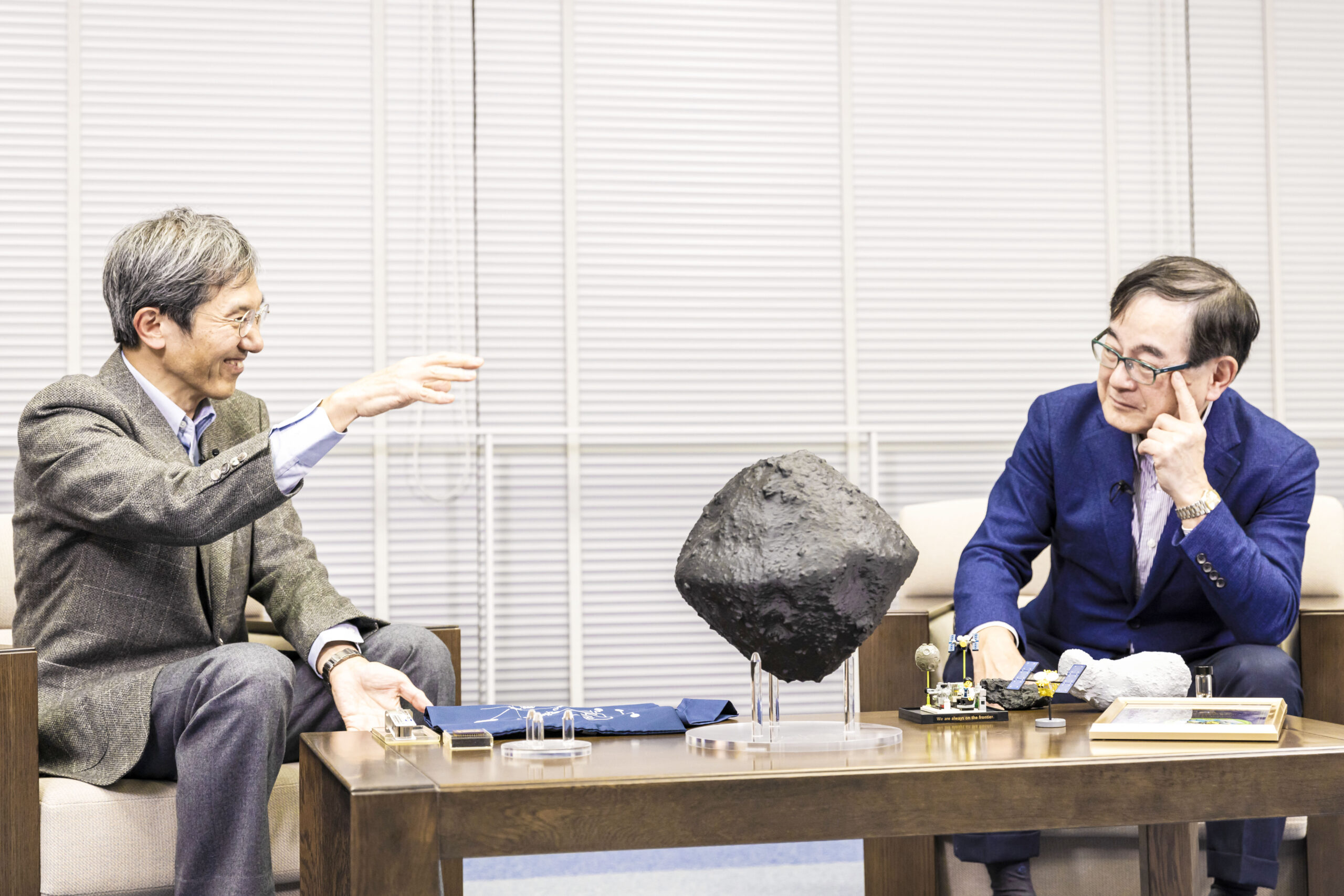
Professor Yurimoto (left) and President Houkin (right) discussing in front of a model of the asteroid Ryugu, from which Hayabusa2 brought back samples.
Yurimoto: Hayabusa2 was intended to find a variety of asteroids, which is another step further for science.Maybe asteroid exploration will become mainstream, and bring us to yet another stage when we can enter space as easily as we explore meteorites (on Earth) now. So until space travel becomes more common, I think we have to put a large effort to reach asteroids like Hayabusa did.
Pursuing your own research
Houkin: I think you are one of the most frequent contributors to the prestigious scientific journals Nature and Science at Hokkaido University.
Yurimoto: I just happened to publish in those journals. For example, it is not that difficult to be a co-author of a Nature paper.
Houkin: In regards to co-authoring a paper with many others, what are the advantages of conducting research as large projects?
Yurimoto: Projects are lively, and it is fun to be a part of them, but their subjects tend to be decided collectively. I am not agains working in a big project, but I would like young people to come up with their own questions that they can pursue for a long time and take a good balance between the two.
The joy of doing research at Hokkaido University
Houkin: Please tell us what you like about Hokkaido University, and what you would like to see changed for the benefit of young people.
Yurimoto: I am really glad that I came to Hokkaido University. It is a comprehensive university with a variety of professors, which is pleasurable. For example, I was very curious about what biology professors were thinking about, and I was actually able to collaborate with a biology professor who taught me a lot about that. Also, I was very happy to receive the Hokkaido Newspaper Culture Award (in 2010) just after I arrived in Hokkaido, and I was very pleased to learn that Hokkaido had such a welcoming atomosphere.
Outreach activities at Hokkaido University
Houkin: I assume that you do public relations and outreach work as part of your job as a scientist.
Yurimoto: I am doing it because I really want to do it. I was encouraged by the response and support from citizens to the Hayabusa project, which made me realize, once again, that it is worth doing. Another thing is that I cannot do outreach alone. I admire people who can do outreach work by themselves, but I need help from others to do it successfully. It was not until I came to Hokkaido University that I began to be able to do this.
Houkin: Did you become more active in public relations after coming to Hokkaido University?
Yurimoto: I was very happy and grateful that everyone was willing to accept a stranger like me at Hokkaido University. The public relations teams also supported me very well. I think I was very lucky to be able to do science communication in such a way.
Houkin: When I look at Nobel Prize laureates, I think that they are all good speakers. Well, not only Nobel Prize laureates, people like Dr. Yurimoto, who have really pursued a certain field, do not just speak fluently, but they are also good at conveying their ideas. Do you enjoy it?
Yurimoto: Yes, I really enjoy it.
Absorbing things from younger people
Houkin: What do you enjoy most about your research?
Yurimoto: The most enjoyable part is when the research group members show me the results of their experiments.
Houkin: Is it when they get a solid result?
Yurimoto: No, it doesn't have to be a solid result. They say "We got it!" or "It didn't work," but whatever they say, that is the most fun. I think I reached my intellectual peak 30 years ago. I want to believe that I have more comprehensive strength (than young people), but that is only my belief (laughs). Young people are better at most things, so I enjoy absorbing whatever they have.
Houkin: What is your next research goal?
Yurimoto: I probably won't be able to reach a goal, because I have never reached that point before. So, while I am still in an environment where I can do research, I will work on my current solar research as far as I can, and then I would like my collaborators to develop their own research freely.
Thoughts on "Selection and Concentration"
Yurimoto: However, what worries me a little now is that the budget for research is gradually decreasing nationwide. I think it is important for Hokkaido University to find a way to manage its budget so that it can continue to survive as a university that can affordably conduct interesting research.
Houkin: While there is project-type research that must produce results before the budget ends, there is also a need for research that does not require immediate results. I think that the so-called "selection and concentration" of national scientific research, in which funds are allocated to problem-solving rather than basic research, is becoming a major problem for the country, including Hokkaido University.
Yurimoto: If we could do "selection and concentration" without exploiting it from somewhere else, that would be an idal. If the overall research budget is reduced, there will always be some snag somewhere. I don't have a solution though.
Houkin: You are right. When there is sufficient money, "selection and concentration" may work. Nowadays, financial resources are really limited. From the perspective of a university president, I believe that Japanese science and technology would have ample opportunity to grow, if only the government would increase the overall budget without cutting back. Your research has been very successful in this field, but I assume that there is a lot of research behind it that was comparable to your work but never saw the light of day.
Yurimoto: Yes. I think there are many. I was lucky.
After the dialogue
Yurimoto: This was the first time that I had the opportunity to speak with the President for a long time, and I am convinced that he will steer Hokkaido University in the right direction. Our talk today led me to that expectation.
Houkin: I think that he is one of the few researchers who have been truly interested in and focused on one thing for a long time without worrying about the results, even if they do not immediately lead to practical values. Personality-wise, he seems to be a person who is fun to work with. Indeed, he has been gathering collaborators and is connected to colleagues inside and outside the University. This reminds me that, while research does require ability and intelligence, passion and personality also play important roles.

